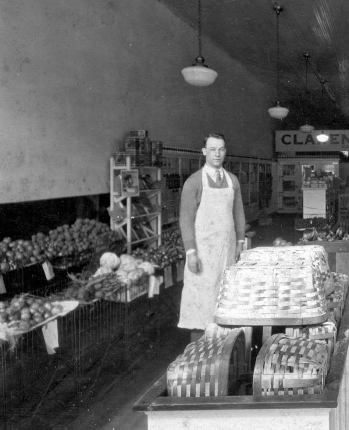The transparent blue eyes—my eyes. My mother must’ve noticed this when she met him—wherever she did. In Hot Springs or Little Rock, sometime before 1928. Noticed this and liked what she saw. A man who liked to be happy. She had never been exactly happy—only inexactly, with the nuns who taught her at St. Anne’s in Fort Smith, where her mother had put her to keep her out of the way.
For being happy, however, there was a price. His mother, Minnie, an unyielding immigrant from County Cavan, a small-town widow and a Presbyterian, maintained views that my mother was a Catholic. Why else go to their school? Catholic meant “wide” instead of diffident and narrow. Parker Carrol was her youngest of three. The baby. Her husband, my father’s father—L.D. Jr.—was already a suicide. A dandified farmer with a gold-headed cane in a small Arkansas town. She’d been left with all his debts and his scandal. She meant to protect her precious last. From the Catholics, definitely. My mother would never fully own him, if his mother had a say. And she would.
My father did not project “a strength,” even as a young man. Rather, he projected a likable, untried quality, a susceptibility to being over-looked. Deceived. Except by my mother. From my memory, I know he tended to stand back in groups, and yet to lean forward when he spoke, as though he was expecting soon to hear something he’d need to know. There was his goodly size; the warm, hesitant smile. A woman who liked him—my mother—could see this as shy, a fragility a wife could work with. He would likely not disguise things or himself: a man who wasn’t so knowing that you couldn’t take care of him. There was the terrible temper, not so much anger as eruptive and impulsive, born of frustrations with things he couldn’t do or hadn’t done well enough, or didn’t know—private dissatisfactions, possibly of the sort that had made his young father take a seat on the porch step one moonlit summer night in 1916, having lost the farm to bad investments, and poison himself to death out of dismay. My father’s temper wasn’t of that kind. His sweetness, the large forward-leaning sunniness and uncertainty worked against that, allowed an opening for a life my mother could see and enter with the sound of her name. Edna.

Parker, Hot Springs, Arkansas, 1929
When she met him, she was seventeen.
1 comment